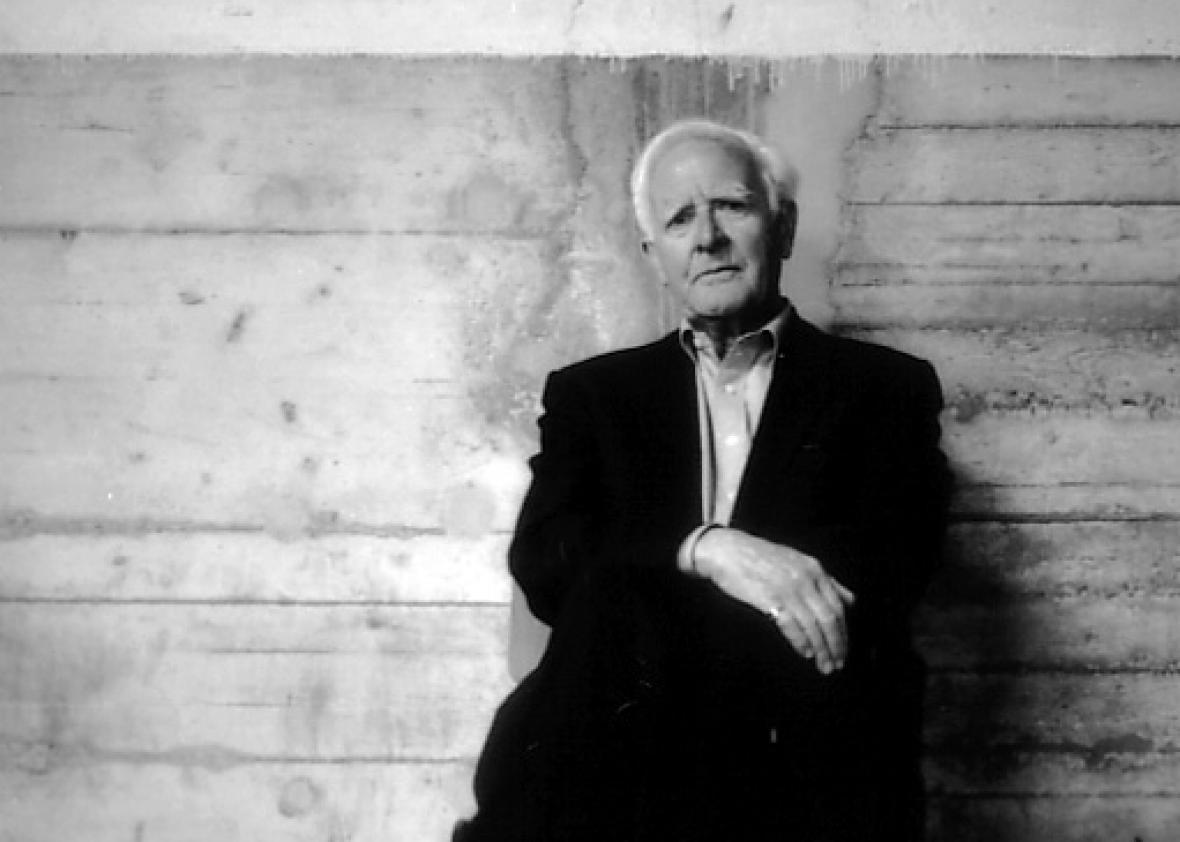When reading a novelist’s memoir, it’s easy to retroactively psychoanalyze their characters through the lens of the author’s childhood. Generally this is inadvisable; fiction is a glorious playground, which can be explored free of whatever one’s parents did or failed to do. But the true lover of John le Carré’s work must make an exception for his memoir The Pigeon Tunnel.
The towering, bombastic, infuriatingly charismatic Ronnie, le Carré’s terrible (and mostly blessedly absentee) father, is the the chain that runs through each of the slightly disjointed tales that make up the book, despite le Carré’s desire to confine him to a single chapter. “I didn’t want him elbowing his way to the top of the hill,” le Carré explains, but there he arrives, just the same. He describes his father as “a crisis addict, a performance addict, a shameless pulpit orator and a scene-grabber.” Ronnie beat up his mother, and he beat up le Carré himself, and spent much of his life in and out of prison (rubbing elbows with, among other notorious London lowlifes of the era, the Kray twins).
The case has been made by many writers, including le Carré himself, that his heroes (especially the great George Smiley) are largely a reaction to James Bond, who le Carré once called “a neo-fascist gangster.” Smiley is short, fat, and bald, repeatedly cuckolded by his young and beautiful wife. Karla, Smiley’s antagonist, is himself an ascetic monk of a man, pulling no triggers, presiding instead like a puppet-master over a vast network of spies and operatives. In a genre where our hero typically tricks the villain into monologuing, it’s notable that Smiley’s first encounter with Karla (there will be only two) results in Smiley himself monologuing disastrously while Karla sits in dead silence.
Certainly an anti-Bond, then, but the memoir reveals him also to be an anti-Ronnie. It’s Ronnie who lived in hotels and squats, juggling identities and leaving secret families and girlfriends in his wake, Ronnie who drove fast cars and was quick with his fists and his verbal sparring. It’s no accident that George Smiley fails on every level to rise to the standards we have come to expect from our spy heroes. The most tense moments in the le Carré oeuvre involve, at most, riffling through a desk or replacing one document with another. Smiley does much of his work in the back of a taxi, or sitting at home, deep in thought.
Generally speaking, people who dislike le Carré novels find them boring. I too find them boring, but gloriously so. You may pick up The Pigeon Tunnel in hopes of learning more about le Carré’s own background in intelligence, and you will be mildly disappointed. His novels already contain anything of interest one might want on that score, and what remains are the dullest realities of espionage: the interminable waiting in uninteresting towns, the attempt to build relationships with low-level functionaries who may or may not someday be of use, years of tedium punctuated with single moments of abject terror. Le Carré’s own career in the field ended when his identity was burned by Kim Philby, the notorious member of the Cambridge Five, an incident to which he devotes very little space. More delicious is the detail that in 1987, in Moscow, a mutual friend offered to introduce le Carré to Philby, who was then both dying and engaged in writing the second volume of his memoirs. Philby had hoped that le Carré would help him do so, a suggestion so absurd that le Carré feels no need to emphasize it other than a flat “I declined to meet him.”
His friendships with Richard Burton and Elizabeth Taylor, and his deeper relationship with Alec Guinness receive similarly brief air time. Le Carré was concerned when Burton was cast as Alec Leamas: “How on earth will this beautiful, thunderous, baritone Welsh voice and this overpowering Triple Alpha Male talent fit inside the character?” His relief while watching Burton undergo the transformation of shrinking himself down to the role is palpable; however bankable, a le Carré hero must leave bombast and machismo at the door. Le Carré knows plenty about the trappings of toxic masculinity and has rejected it.
The Pigeon Tunnel, fundamentally, is an exercise in self-knowledge; the audience being himself as much as devoted followers like me. Even the title underscores this point, deriving from a shooting range in Monte Carlo stocked with game birds to which Ronnie once took le Carré while on a gambling binge. The pigeons who were not killed by the guns of the shooters promptly returned to the tunnels that confined them, despite having every chance to fly off.
“Quite why this image has haunted me for so long,” le Carré writes, “is something the reader is perhaps better able to judge than I am.”
